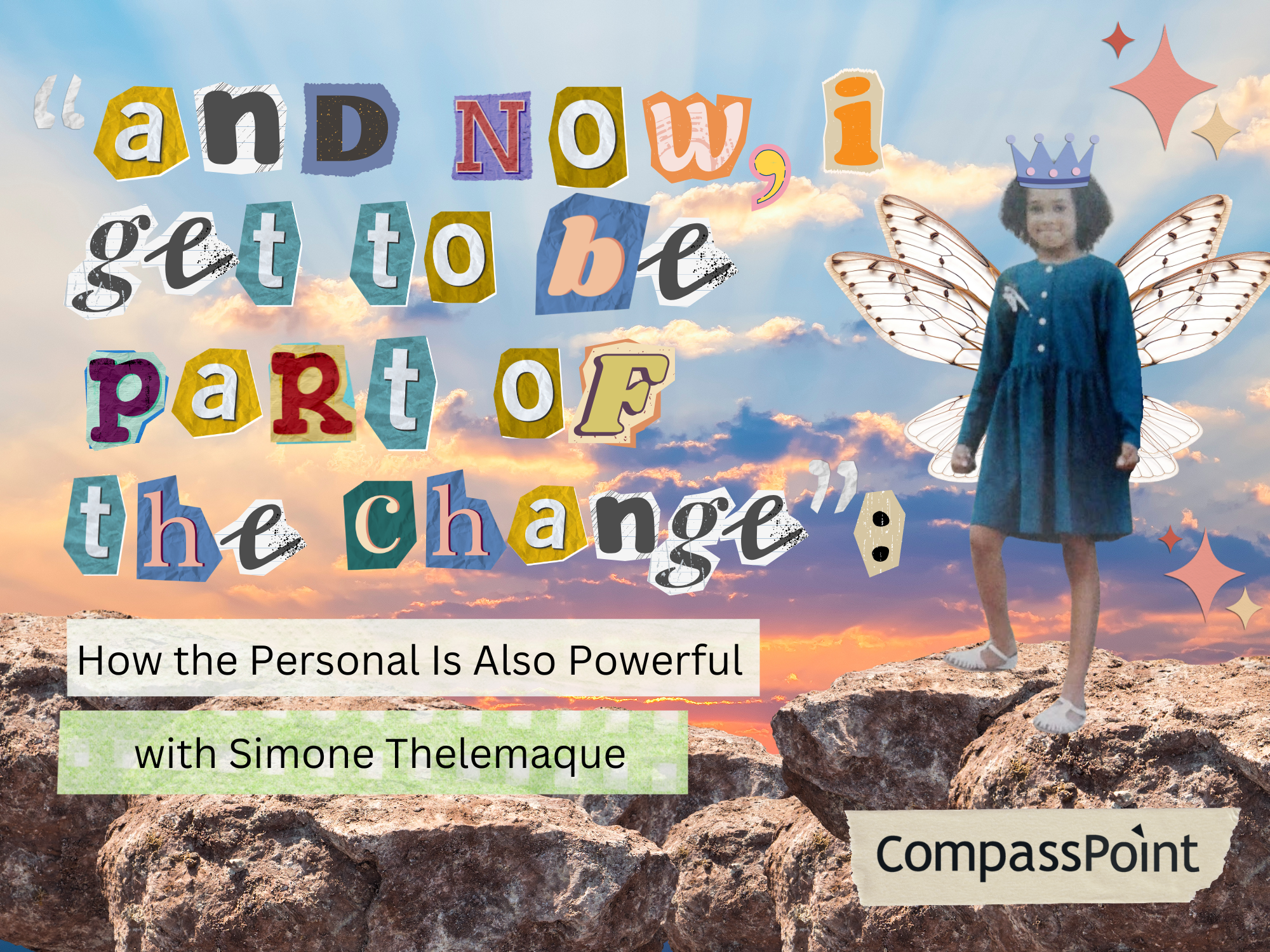Dear CompassPoint Community,
It’s been a few months since we shared an update about executive leadership transitions at CompassPoint, and now, we’re excited to share that Liz Derias and Shannon Ellis are formally CompassPoint’s Co-Executive Directors!
For the past few years, Liz and Shannon have both played key roles in evolving CompassPoint’s programming, shaping the way we manage our resources, and sustaining this organization so that it can continue to be an asset to nonprofit and social change leaders.
Notably, Liz has stewarded the ongoing work of updating CompassPoint’s public training program to become more deeply rooted in social justice values and center voices and experiences of Black, Indigenous, and POC leaders. Shannon has been in an interim executive role for several years now, holding down key internal functions around managing time, people power, and financial resources. Together, they bring continuity and stability to our 45-year old organization, as well as a renewed drive to push CompassPoint to better reflect its vision and values.
We’re so grateful for their willingness to take on, continue, and deepen executive responsibilities--and we’re excited for the possibilities that a newly formalized team and leadership structure will bring.
We’re committed to recognizing and growing Black leadership inside and out
It’s the first time in CompassPoint’s 45-year history that Black leadership has been represented at the executive level. We want to mark this moment in multiple ways: as something to celebrate; to acknowledge that it’s taken far too long to get here, and to affirm that we have more work to do. We can’t authentically commit to racial justice without also supporting, promoting, and compensating Black leadership from within.
Leadership isn’t bound to a single position and it’s important for us to lift up the fact that Black women are leading all across CompassPoint: at the board level and across programs in associate-and director-level roles.
We will continue to be a multiracial organization, recognizing that Pro-Blackness requires specific work from non-Black folks as well. This moment represents a deepening of our racial justice stance, an opportunity to better support Black leaders and organizations, and an invitation for everyone in our community to participate in centering Pro-Blackness as a strategy for social justice.
We’re deepening our approach to shared leadership, and moving toward a co-director triad (team of three)
Formalizing this partnership is the first step in building a team that will be made up of three co-executive directors. Our goal is to invite a third co-executive director into the executive leadership team over the next year.
In the model we’re visioning, each executive leader will have an area of focus that they engage deeply in: programmatic vision and work, managing people power and financial resources, and growing our voice and presence. Our vision is for the work of these three leaders to be focused, but also interconnected and mutually supported.
So often, we see the typical executive director role set up in unrealistic ways that leave many leaders feeling isolated and burned out. By distributing the work, we’re aspiring to cultivate greater sustainability, stability, and innovation on the personal and organizational levels. In terms of the stability for the organization, it means that the departure of one executive leader (which is expected, natural, and healthy) doesn’t derail the organization’s work and at the same time, opens the door for a steady renewal of new energy, talents, and vision.
With excitement for this next chapter,
The CompassPoint Team






Submit a comment